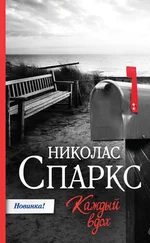My psychiatrist sometimes used flowery language like The Darkness to describe PTSD, also known as post-traumatic stress disorder. When I asked him why, he explained that every patient was different and that part of his job was to find words that accurately reflected the mood and feelings of the patient in a way that would lead the patient along the slow path toward recovery. Since he’d been working with me, he’d referred to my PTSD as turmoil , issues , struggle , the butterfly effect , emotion dysregulation , trigger sensitivity , and of course, The Darkness . It kept our sessions interesting, and I had to admit that darkness was about as accurate a description of the way I’d been feeling as any of them. For a long time after the explosion, my mood was dark, as black as the night sky without stars or a moon, even if I didn’t fully realize why. Early on, I was stubbornly in denial about PTSD, but then again, I’d always been stubborn.
In all candor, my anger, depression, and insomnia made perfect sense to me at the time. Whenever I glanced in the mirror, I was reminded of what had happened at Kandahar Airfield on September 9, 2011, when a rocket aimed at the hospital where I was working impacted near the entrance, only seconds after I’d exited the building. There is a bit of irony in my choice of words, since glancing in the mirror isn’t the same as it once was. I was blinded in my right eye, which means I have no depth perception. Staring at a reflection of myself feels a little like watching swimming fish on an old computer screen saver—almost real, but not quite—and even if I were able to get past that, my other wounds are as obvious as a lone flag planted atop Mount Everest. I’ve already mentioned the scar on my face, but shrapnel left my torso pockmarked like the moon. The pinkie and ring finger on my left hand were blown off—particularly unfortunate since I’m a lefty—and I lost my left ear as well. Believe it or not, that was the wound that bothered me the most about my appearance. A human head doesn’t look natural without an ear. I looked strangely lopsided and it wasn’t until that moment that I’d ever really appreciated my ear at all. In the rare times I thought about my ears, it was always in the context of hearing things. But try wearing sunglasses with just one ear and you’ll understand why I felt the loss acutely.
I haven’t yet mentioned the spinal injuries, which meant having to learn how to walk again, or the thrumming headaches that lingered for months, all of which left me a physical wreck. But the good doctors at Walter Reed fixed me up. Well, most of me, anyway. As soon as I was upright again, my care shifted to my old alma mater Johns Hopkins, where the cosmetic surgeries were performed. I now have a prosthetic ear—so well done I can hardly tell it’s fake—and my eye appears normal, even if it’s completely useless. They couldn’t do much about the fingers—they were fertilizer in Afghanistan by then—but a plastic surgeon was able to diminish the size of my facial scar to the thin, white line that it now is. It’s noticeable, but it’s not as though little kids scream at the sight of me. I like to tell myself that it adds character, that beneath the surface of the suave and debonair man before you exists a man of intensity and courage, who has experienced and survived real danger. Or something like that.
Still, along with my body, my entire life was blown up as well, including my career. I didn’t know what to do with myself or my future; I didn’t know how to handle the flashbacks or insomnia or my hair-trigger anger, or any of the other crazy symptoms associated with PTSD. Things went from bad to worse until I hit rock bottom—think a four-day bender, where I woke covered in vomit—and I finally realized that I needed help. I found a psychiatrist named Eric Bowen, who was an expert in CBT and DBT, or cognitive and dialectical behavioral therapies. In essence, both CBT and DBT focus on behaviors as a way to help control or manage what you’re thinking or feeling. If you’re feeling put-upon, force yourself to stand up straight; if you’re feeling overwhelmed because you’re faced with a complex task, try to lessen that sensation with simple tasks of things you can do, like starting with the first easy step, and then, after that, doing the next simple thing.
It takes a lot of work to modify behavior—and there are a lot of other aspects to CBT and DBT—but slowly but surely I started to get my act back together. With that came thoughts of the future. Dr. Bowen and I discussed all sorts of career options, but in the end, I realized that I missed the practice of medicine. I contacted Johns Hopkins and applied for another residency. This time, in psychiatry. I think Bowen was flattered by that. Long story short, strings were pulled—maybe because I’d been there before, maybe because I was a disabled vet—and exceptions were granted. I was accepted as a psychiatric resident, with a start date in July. Not long after I’d received the congratulatory notification from Johns Hopkins, I learned that my grandfather had had a stroke. It occurred in Easley, South Carolina, a town I’d never heard him mention before. I was urged to come to the hospital quickly, as he didn’t have much time left.
I couldn’t fathom why he was there. As far as I knew, he hadn’t left New Bern in years. By the time I got there and found him in the hospital, he could barely speak; it was all he could do to choke out a single word at a time. Even those were hard to understand. He said some odd things to me, things that hurt me even if they made no sense, but I couldn’t shake the feeling that he was trying to communicate something important before he finally passed away.
As his only remaining family, it was up to me to make the funeral arrangements. I was certain he wanted to be buried in New Bern. I had him transported back to his hometown, set up a small graveside service, which had more attendees than I’d imagined there would be, and spent a lot of time at his house, wandering the property and wrestling with my grief and guilt. Because my parents were so busy with their own lives, I’d spent most of my summers growing up in New Bern, and I missed my grandfather with an ache that felt like a physical vise. He was funny, he was wise and kind, and he always made me feel older and smarter than I really was. When I was eight, he let me take a puff from his corncob pipe; he taught me how to fly-fish and let me help whenever he repaired an engine. He taught me everything about bees and beekeeping, and when I was a teenager, he told me that one day, I would meet a woman who would change my life forever. When I asked how I would know if I’d met the right one, he winked and told me that if I wasn’t sure, then I’d better just keep on looking.
Somehow, with all that had happened since Kandahar, I hadn’t made time to visit him during the past few years. I know he worried about my condition, but I hadn’t wanted to share with him the demons I was battling. Hell, it was hard enough to talk about my life with Dr. Bowen, and even though I knew my grandfather wouldn’t judge me, it felt easier to keep my distance. It crushed me that he was taken before I had the chance to really reconnect with him. To top it off, a local attorney contacted me right after the funeral to let me know that I’d inherited my grandfather’s property, so I found myself the owner of the very home where I’d spent so many formative summers as a kid. In the weeks following the funeral, I spent a lot of time reflecting on all the words I’d left unspoken to the man who had loved me so unconditionally.
My mind also kept returning to the odd things my grandfather had said to me on his deathbed, and I wondered why he’d been in Easley, South Carolina, in the first place. Did it have something to do with the bees? Was he visiting an old friend? Dating a woman? The questions continued to gnaw at me. I spoke to Dr. Bowen about it, and he suggested that I try to find the answers. The holidays passed without notice, and with the arrival of the new year I listed my condo with a realtor, thinking it might take a few months to sell. Lo and behold, I had an offer within days, and closed in February. Since I’d soon be moving to Baltimore for residency, it didn’t make sense to find a place to rent temporarily. I thought about my grandfather’s place in New Bern and figured, why not?
Читать дальше
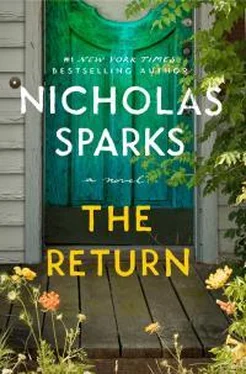





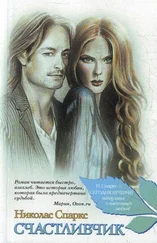

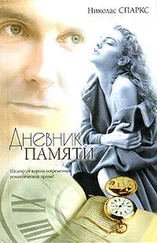
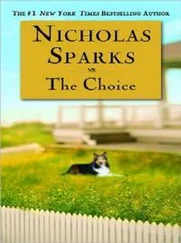

![Николас Спаркс - Каждый вдох [litres]](/books/414723/nikolas-sparks-kazhdyj-vdoh-litres-thumb.webp)
